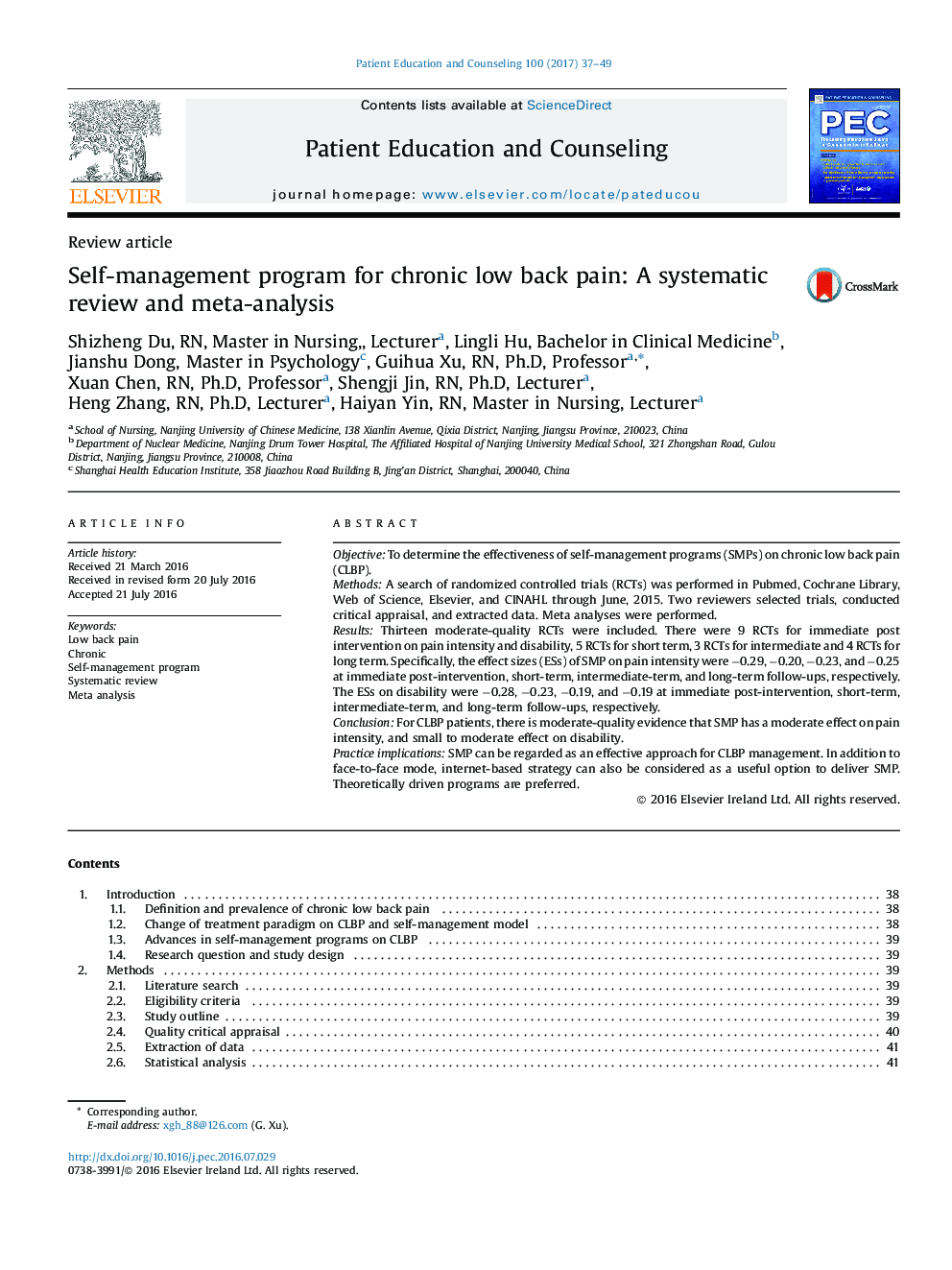| Article ID | Journal | Published Year | Pages | File Type |
|---|---|---|---|---|
| 5682013 | Patient Education and Counseling | 2017 | 13 Pages |
â¢Trials are searched on self-management program for chronic low back pain.â¢Thirteen randomized controlled trials with fair quality are included.â¢Self-management program is effective in chronic low back pain management.â¢No adverse events are reported.
ObjectiveTo determine the effectiveness of self-management programs (SMPs) on chronic low back pain (CLBP).MethodsA search of randomized controlled trials (RCTs) was performed in Pubmed, Cochrane Library, Web of Science, Elsevier, and CINAHL through June, 2015. Two reviewers selected trials, conducted critical appraisal, and extracted data. Meta analyses were performed.ResultsThirteen moderate-quality RCTs were included. There were 9 RCTs for immediate post intervention on pain intensity and disability, 5 RCTs for short term, 3 RCTs for intermediate and 4 RCTs for long term. Specifically, the effect sizes (ESs) of SMP on pain intensity were â0.29, â0.20, â0.23, and â0.25 at immediate post-intervention, short-term, intermediate-term, and long-term follow-ups, respectively. The ESs on disability were â0.28, â0.23, â0.19, and â0.19 at immediate post-intervention, short-term, intermediate-term, and long-term follow-ups, respectively.ConclusionFor CLBP patients, there is moderate-quality evidence that SMP has a moderate effect on pain intensity, and small to moderate effect on disability.Practice implicationsSMP can be regarded as an effective approach for CLBP management. In addition to face-to-face mode, internet-based strategy can also be considered as a useful option to deliver SMP. Theoretically driven programs are preferred.
